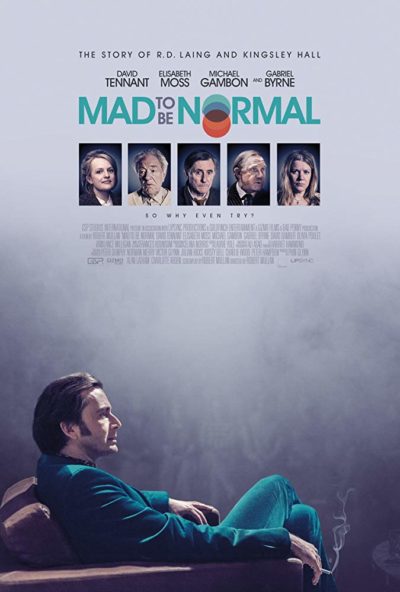
R.D. Laing was a controversial Scottish psychiatrist working in London in the 1960s. Eschewing the usual treatments of tranquilisers and electro-shock therapy, he housed (and lived with) unmedicated (save for some LSD experimentation) patients in a unique community.
David Tennant plays Laing in this biopic. Tennant is good in the role, so it is no fault of his that Laing remains a difficult figure to read or empathise with even after nearly two hours with him here. Student Angie Wood (Elisabeth Moss) becomes his lover and moves in with Laing and his patients.
Towards the end of the film with their relationship on the rocks, she tells Laing he has changed, but this is not demonstrated at all in the film. Egotistical, driven and abrupt, he appears to be exactly the same as when he met her, save for an increase in his drinking. He was estranged from his ex-wife, but we do not see her at all, and so little time is spent with his five kids that the terminal illness one of them falls foul of has no emotional impact.
As for Laing’s work, again it is not obvious why he was such a revered figure. Granted, the traditional treatments were clearly barbaric, but aside from one moment when he makes a breakthrough with a patient whilst on a trip to America, in the best scene in the film, he isn’t shown having any success. The patients in his house don’t seem to improve much, and one, Jim (an impressive Gabriel Byrne) becomes homicidal.
A potentially interesting subject, and a film with some good performances, this is totally let down by Robert Mullan’s and Tracy Moreton’s weak screenplay.
Rating: 4.5 out of 10